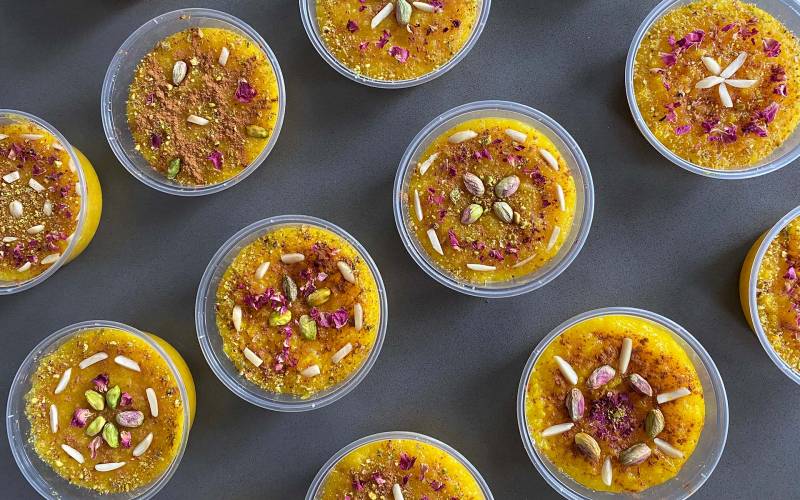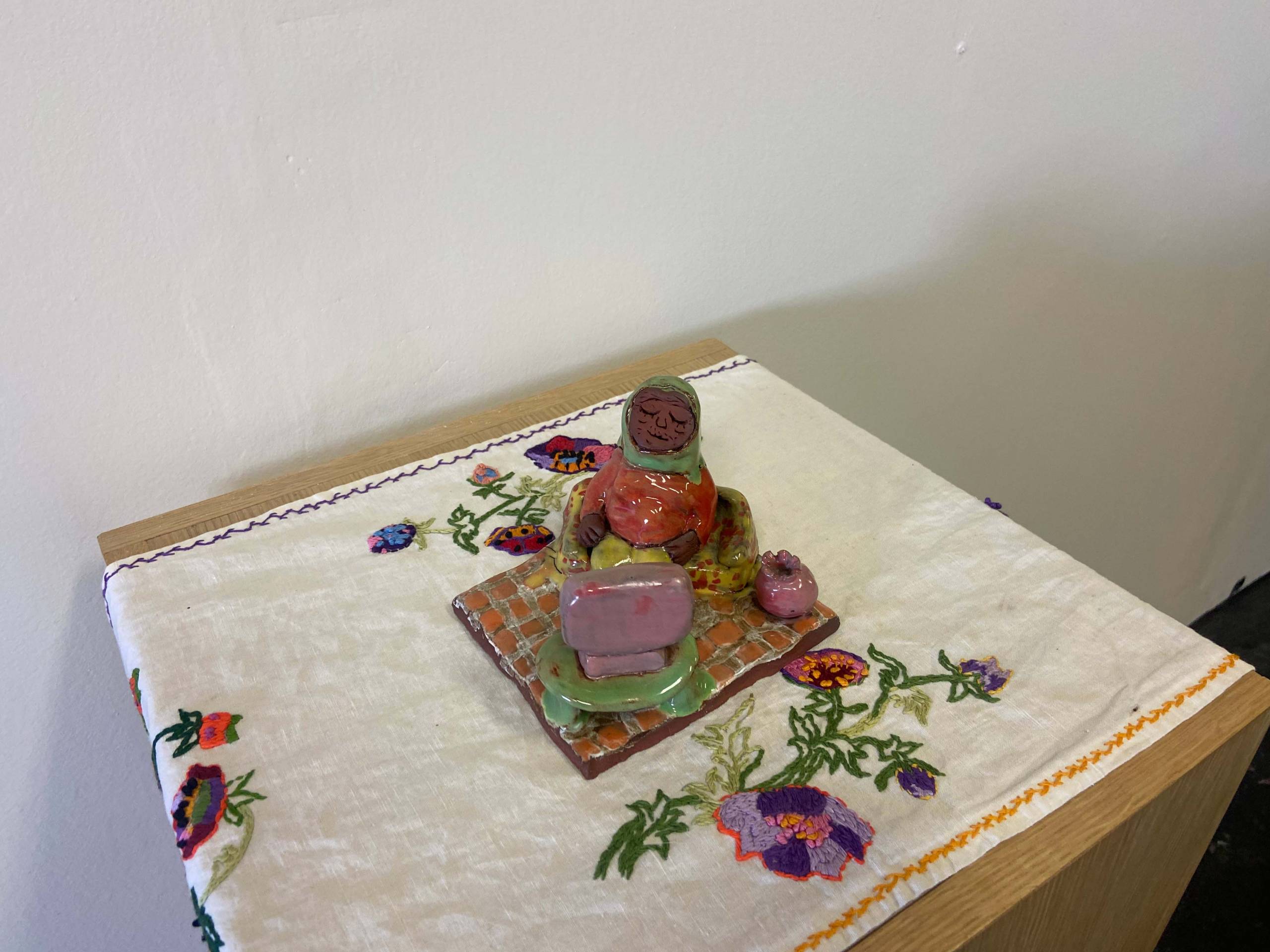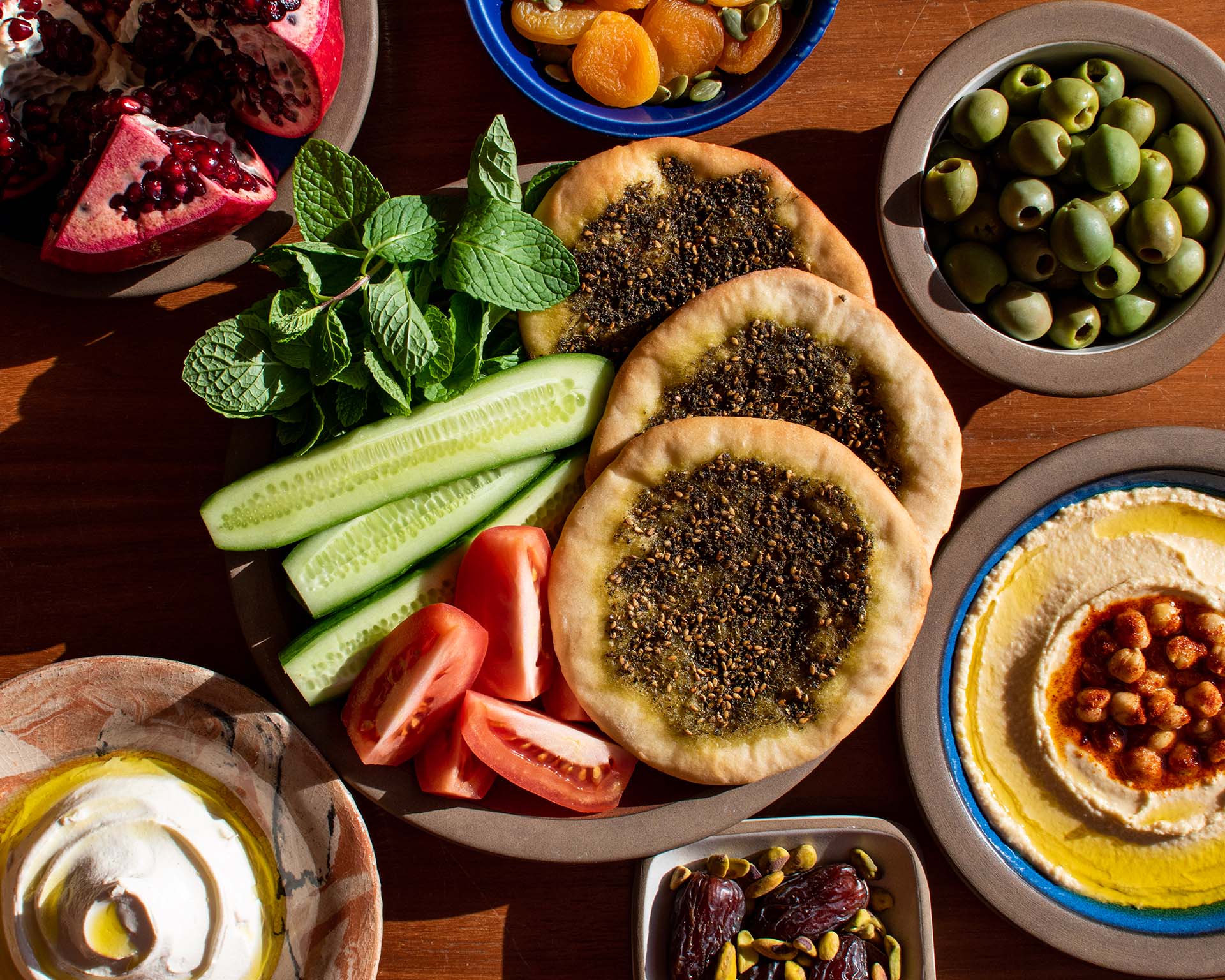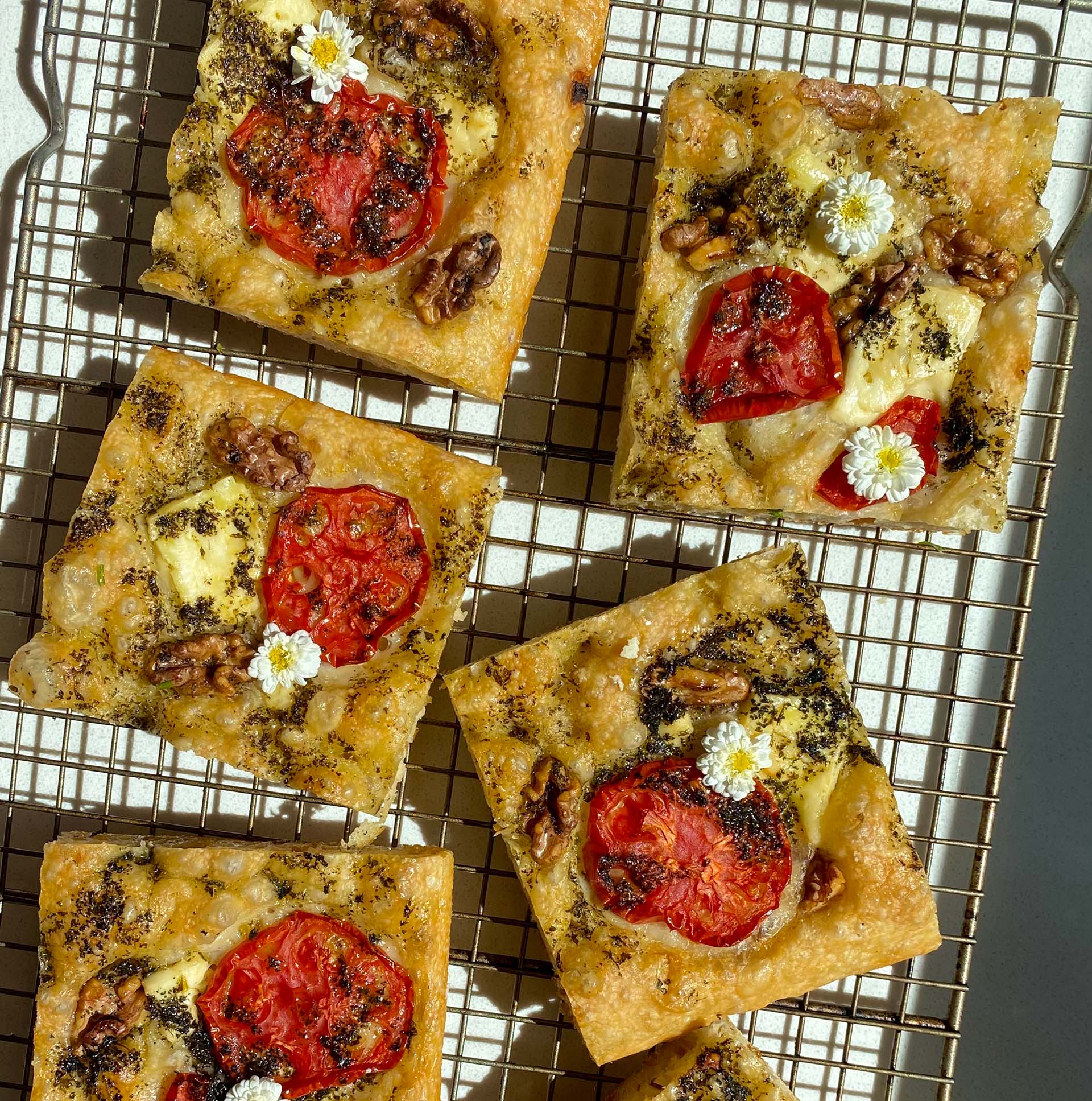Biryani, pilaf and polo are a few of the many iterations of intricately seasoned and adorned rice dishes found across the South, Southwest Asia and North Africa (SSWANA) region. They’re also the inspiration for Jeweled Rice, a temporary gallery and food pop-up series in Oakland.
“Everyone in the region has their own version of it,” curator Jasmine Djavahery explains. “We all have some beautiful, colorful rice dish that’s a melange of sweet, savory, sour flavors that seem, perhaps from afar, that they wouldn’t work. But they blend perfectly together.”
Djavahery began identifying as SSWANA—rather than “Middle Eastern”—while studying art and ethnic studies at UC Santa Cruz. “It’s so specific to the West,” they say about the term “Middle East.” “It does not encompass the actual region.” Whereas “Middle East” serves the political and economic interests of colonial powers, “SSWANA” reprioritizes the peoples of the region.
Djavahery moved to the East Bay after graduation to take part in the region’s thriving arts and cultural scenes. Through the Center for Iranian Diaspora Studies at San Francisco State University, they hosted Del beh Del, a podcast spotlighting progressive conversations in the global Iranian community. “It solidified my desire and need to create spaces that I wasn’t finding in the Persian community,” Djavahery reflects. “I also felt like I needed to build my own community and knowledge of the SSWANA community.”
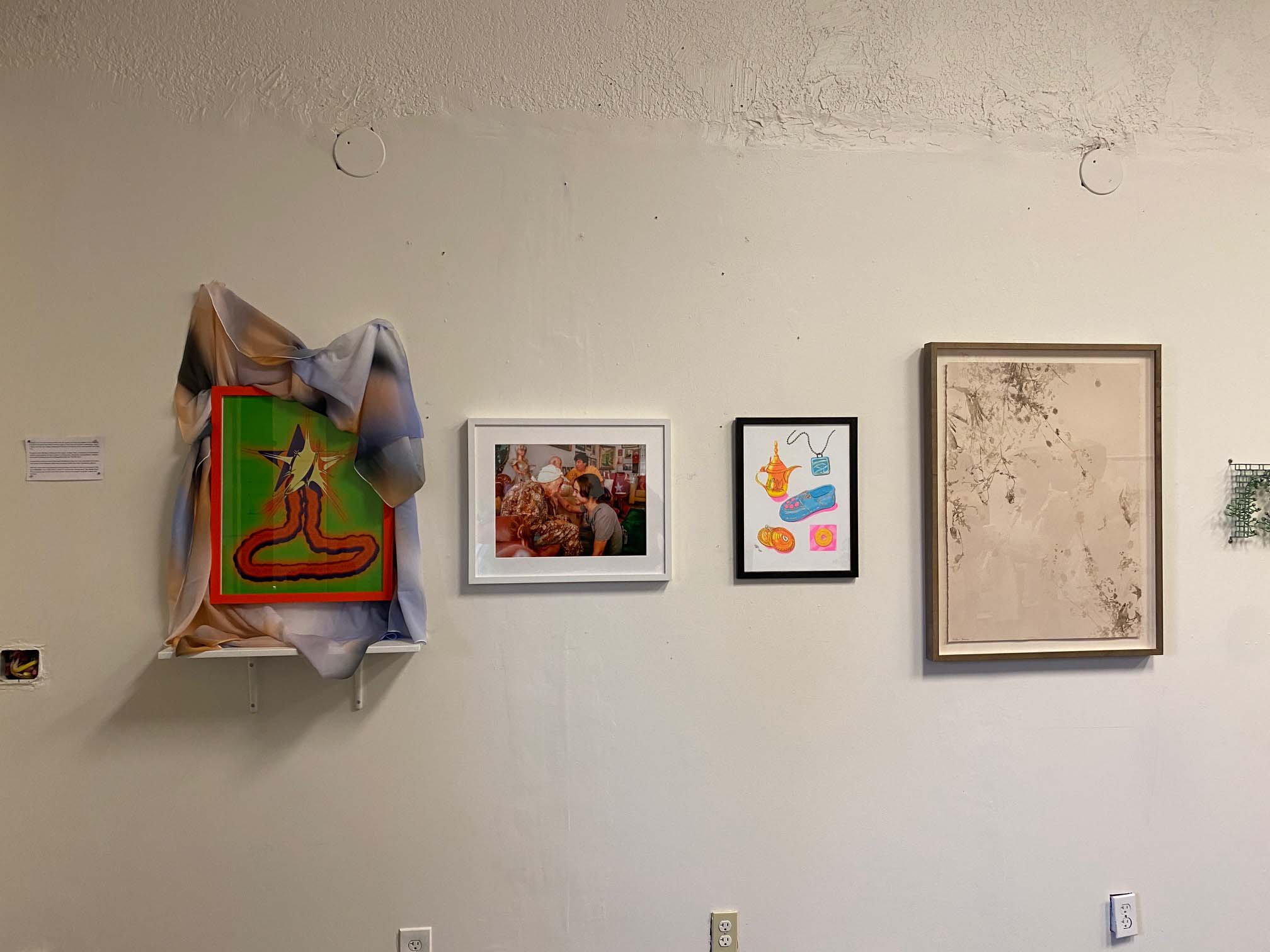
The relationships Djavahery built with other SSWANA creatives and community organizers culminated in Jeweled Rice, a show housed at North Oakland’s Crisis Club Gallery through September. The show features a multi-medium art gallery and food pop-ups, offering a glimpse into the kaleidoscope that makes up the SSWANA diaspora.
